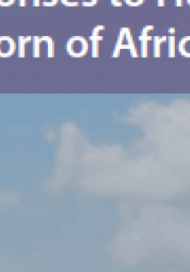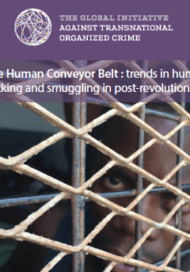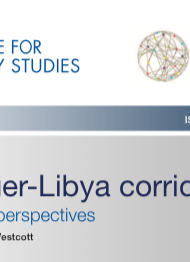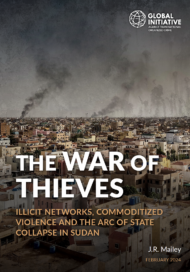Posted on 24 May 2017
In the period 2013-16, more than 1.5 million people have converged towards Europe from across Africa, the Middle East and Asia. Some seek asylum from conflict, violence and humanitarian need; others are migrant workers taking the opportunity of a confluence of political instabilities and circumstance that has made migration to Europe more affordable and accessible than ever before.
This report, authored by Tuesday Reitano, Peter Tinti, Mark Shaw and Lucia Bird of the Global Initiative against Transnational Organized Crime, presents the major findings of research conducted between July and September 2016 over eight major smuggling hubs between the Horn of Africa and Europe. The research methodology was a broad selection of key informant interviews – more than 600 individual interviews – with national government officials, civil society actors, international officials, think tanks and policy bodies, but most importantly with migrants and traffickers themselves. This was supplemented with a review of the growing body of literature on mixed migration in the region and towards Europe. In doing so, the study adopts an innovative approach, situating human smuggling within its local political economy, and proposing context relevant approaches in response.
This report assesses the nature of the smuggling market according to the three inter-dependent smuggling ‘systems’ that feature along the major route for Horn of Africans moving towards Europe:
- Horn of Africa System (Addis Ababa, Ethiopia; Dadaab, Kenya; Khartoum, Sudan; Sudan/Eritrea Border; Eastern Sudan)
- Sahel System (Agadez, Niger; Kufra, Libya; Sebha, Libya)
- Maghreb Coastal System (Zuwara, Libya; Subratha, Libya; Alexandria, Egypt)

The goal of the market analysis was to understand the political economy of each system, identify key actors, and assess the extent of market consolidation by examining indicators provided through price and violence.
Addressing irregular migration and the burgeoning transnational organised crime of smuggling of migrants is an urgent challenge which the states of the region must address in partnership with the international community through an integrated response. Moreover, it is increasingly clear that this will need to be lead by development actors, as criminal justice and security approaches have not only failed to have a meaningful impact on the problem, but in some cases have actually lead to an increase in the harm caused by the crime’s continued proliferation. Therefore, based upon the research and market analysis, this report proposes a more holistic series of programmatic interventions that could be pursued by development or other actors, as well as a reorientation of some law enforcement priorities.




